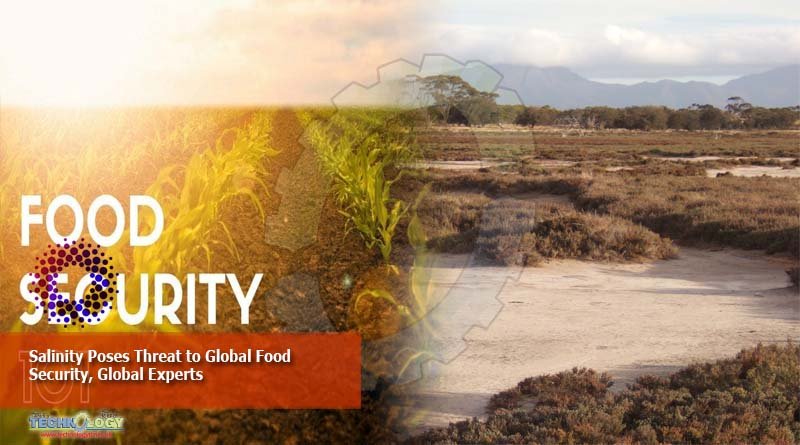Salinity poses an increasing threat to global food security affecting soil and water contamination making it not suitable for drinking and agriculture, concluded the speakers of an online seminar on “Saline Agriculture -Solution to Global Food Security” organized by COMSTECH in collaboration with UK- Pakistan Science & Innovation Global Network (UPSIGN) and Pakistan Academy of Sciences (PAS) on September 29.

Distinguished scholars of soil salinity, soil health, water & irrigation, innovative crops, livestock, and aquaculture policy, from across the globe – Morocco, Pakistan, UAE, Netherlands, United Kingdom, Egypt, and The Gambia addressed the session.
Dr. Khalid Mahmood of Rothamsted Research/UPSIGN and Prof. Rana Iqrar Khan, former VC University of Agriculture Faisalabad chaired the session.
Dr. Khurshid Hasanain, Adviser COMSTECH appreciated the efforts of the scientists and pressed the need of working in collaboration with international partners and policymakers across OIC countries to address the challenges of salinity. He highlighted COMSTECH’s efforts to deal with this problem.
In her keynote address Dr. Ismahane Elouafi, DG, International Biosaline Agriculture Research Institute, UAE, emphasized the need for a joined-up approach to tackle the global problem of salinity by mentioning that only 3% of the world available water is fresh and rest is all saline, we need to develop innovative solutions to grow crops and raise aquaculture species, she stressed. Prof. Steve McGrath from Rothamsted Research UK, emphasized the need for understanding importance of soil health for food production. Dr. Ragab from Center for Ecology and Hydrology UK, spoke on how to overcome salinity and improve water management for saline soils.
Prof. Kauser Abdullah Malik from FC college stressed upon the need of mitigation strategies to address soil salinity. Dr. Abdelaziz Hirich from Morocco talked on developing salt tolerant crops including Quinoa. Dr. Fatou Bojang, National Agriculture Research Institute, The Gambia, highlighted the issue of salinity affecting rice crop in her country. Dr. Choukrallah Redouane, from Morocco shared the experience of dealing with wastewater for extracting nutrients to grow horticulture and biomass crops. Dr Kate Negacz, Vrije Universiteit Netherlands discussed the importance of saline agriculture to address UNSDGs. Prof Dr. Arifa Tahir from Lahore College for Women University explained the new innovative methods of growing crops in hydroponics. Dr. Munawar Kazmi from ACIAR Pakistan informed that over 7 million hectares of land are affected by soil salinity and sodicity and secondary salinization has caused a loss of 2.0 million hectares due to the use of poor-quality groundwater and it has affected the livelihood of millions of farmers and cause a setback to Pakistan’s economy.
More than 100 participants from across the globe including Saudi Arabia, Morocco, United Kingdom, Brazil, Australia, Libya, Malaysia, Jordan, Germany, Netherlands, United States of America, The Gambia, Egypt and UAE attended this event.
This seminar was part of the continuous efforts of COMSTECH to promote sustainable agriculture and nutritious food security in the OIC region. Development of Regional Gene Banks for plant Genetic Resources and New Breeding Technologies for Food and Nutritional Security are two other projects of COMSTECH for the improvement of agriculture in OIC region. A complete video recording of this event is available at COMSTECH Youtube channel “comstech-oic”.
